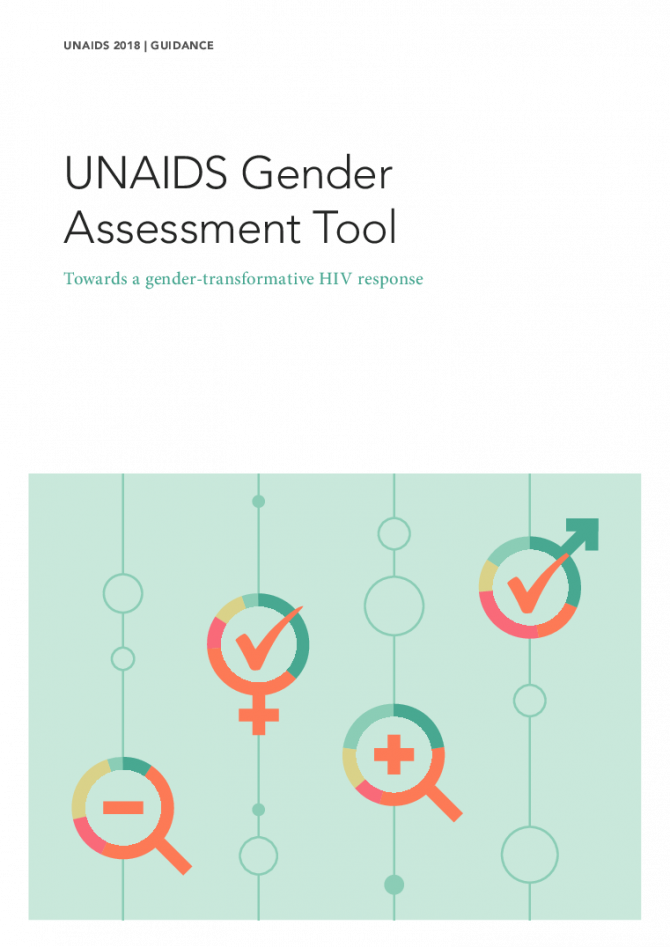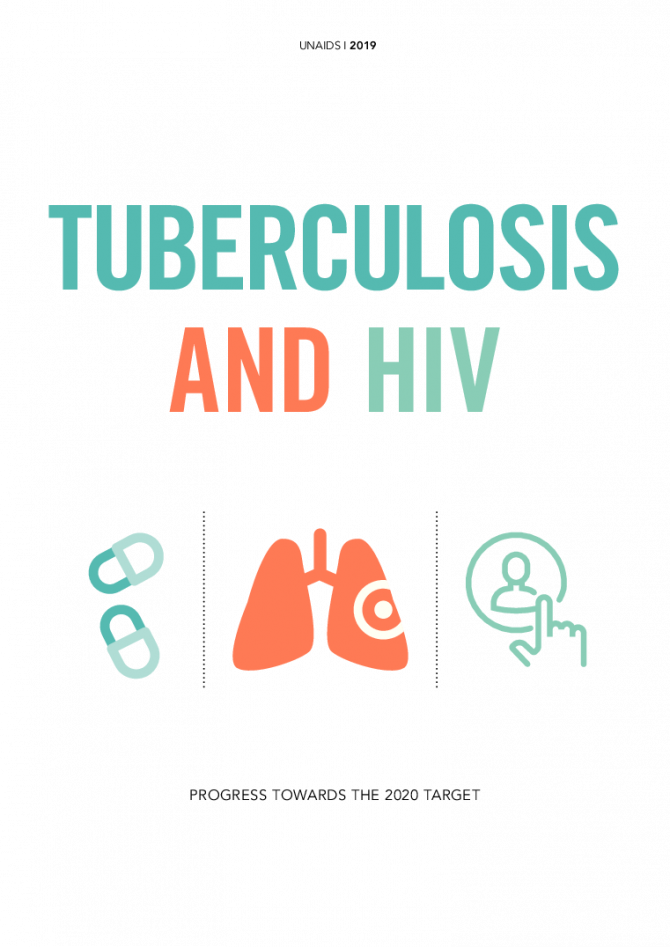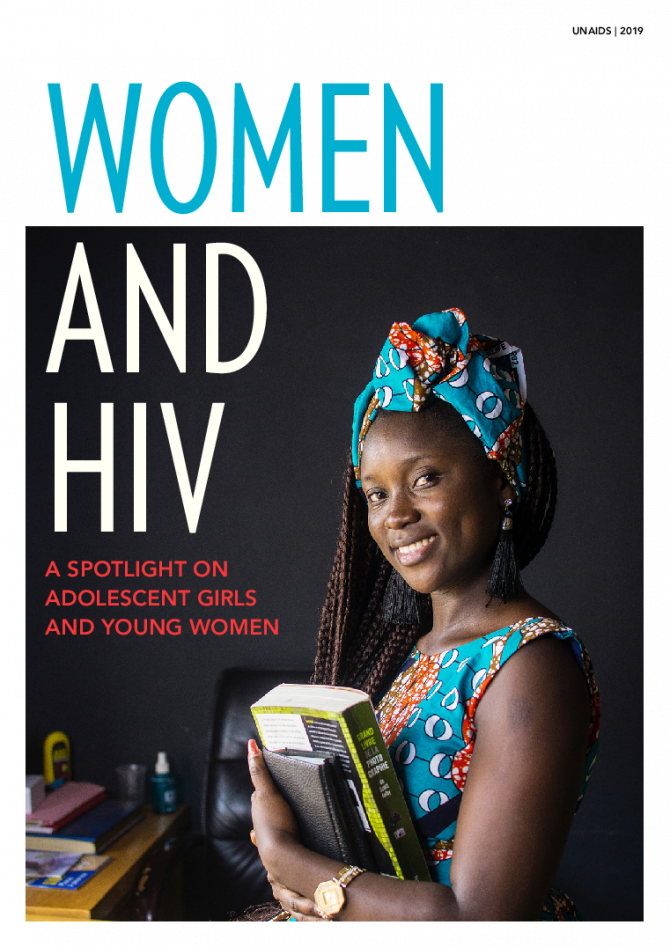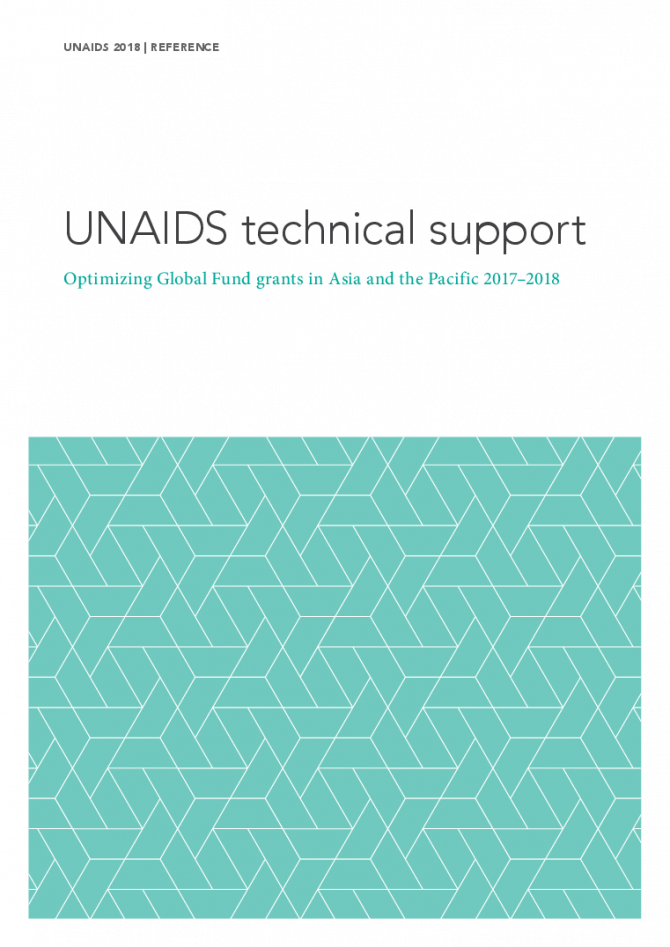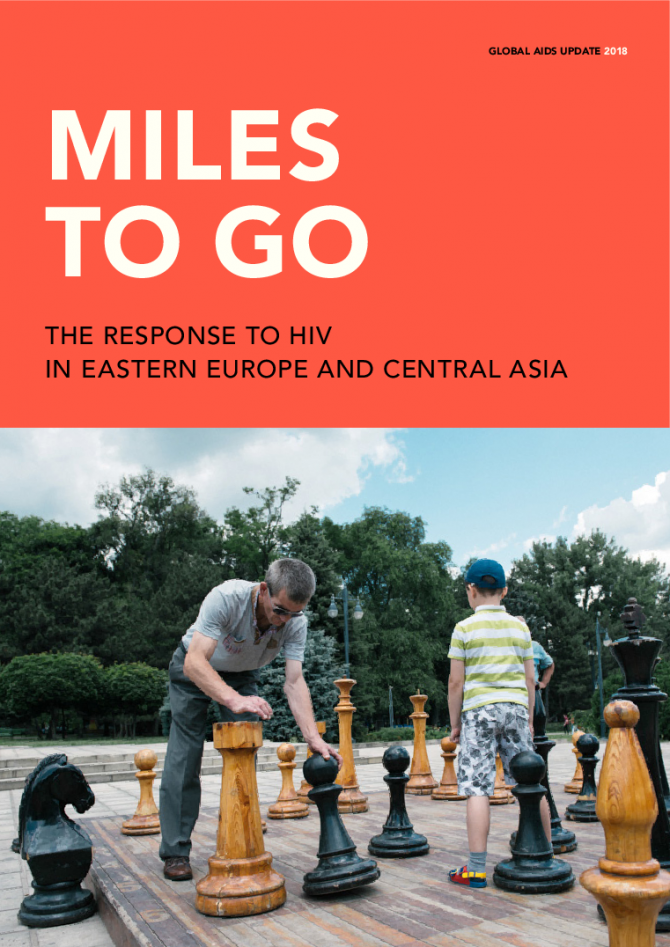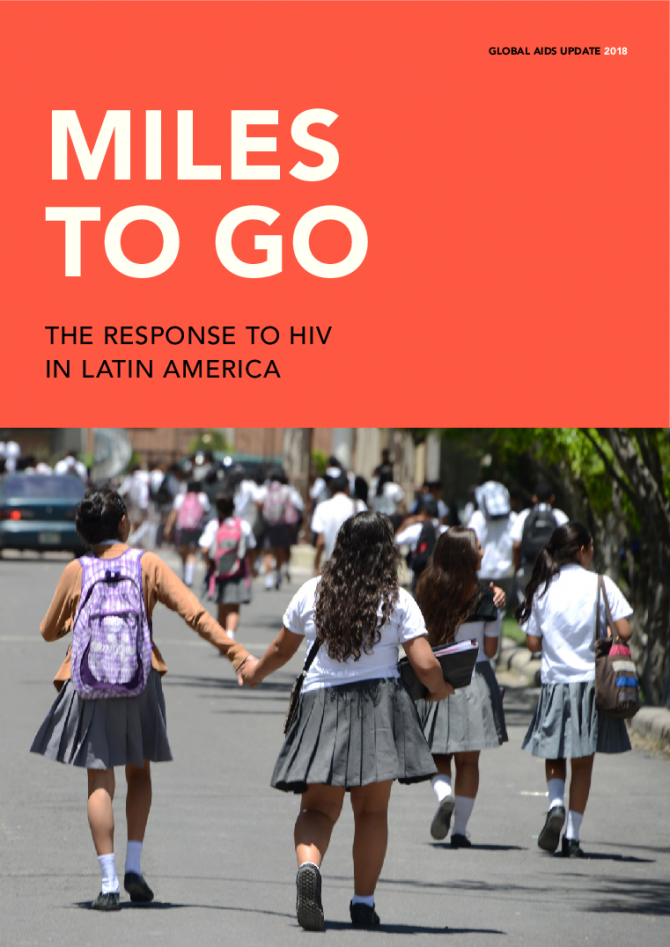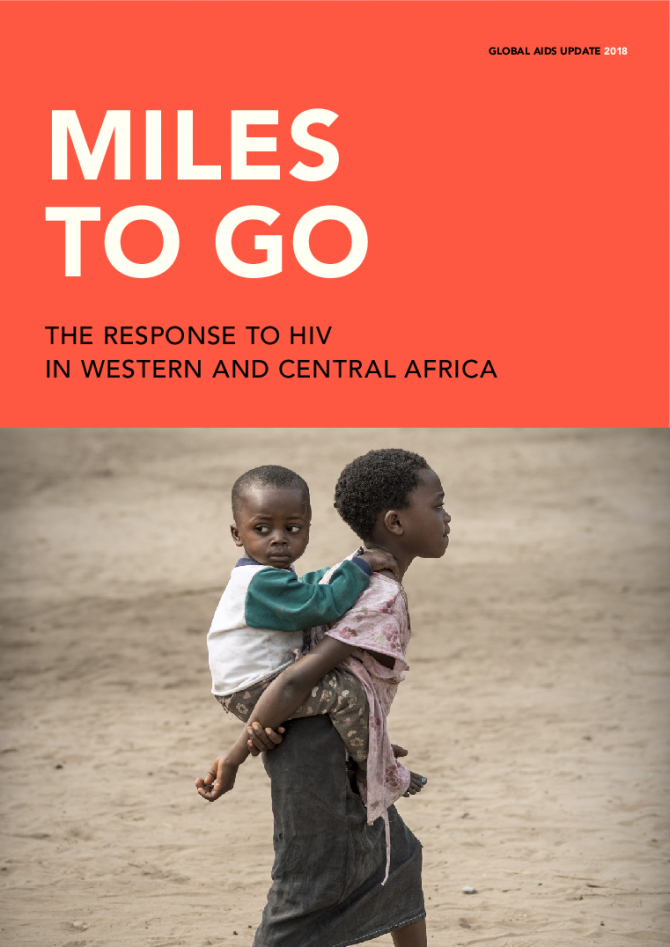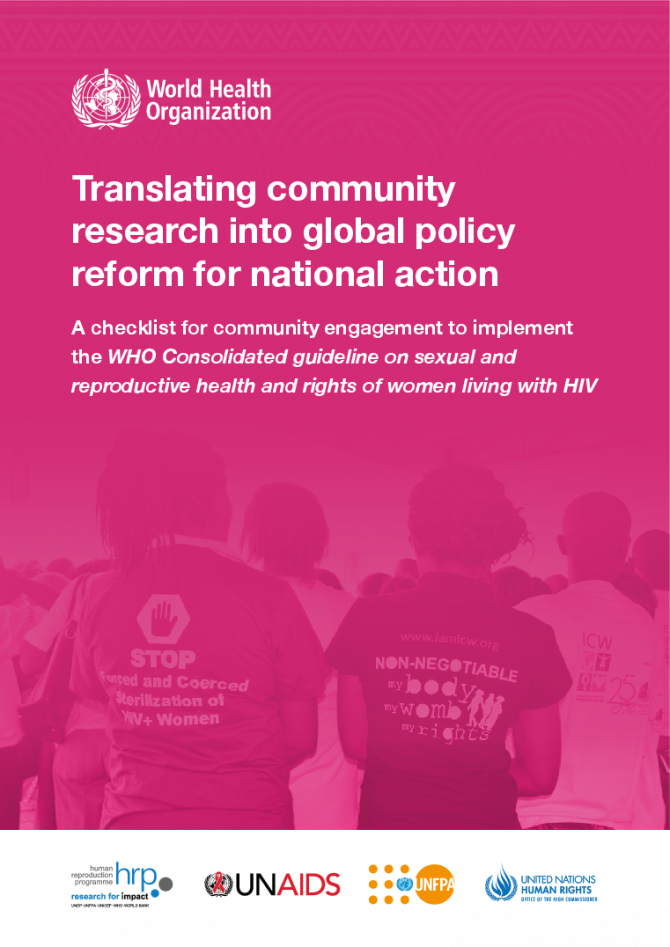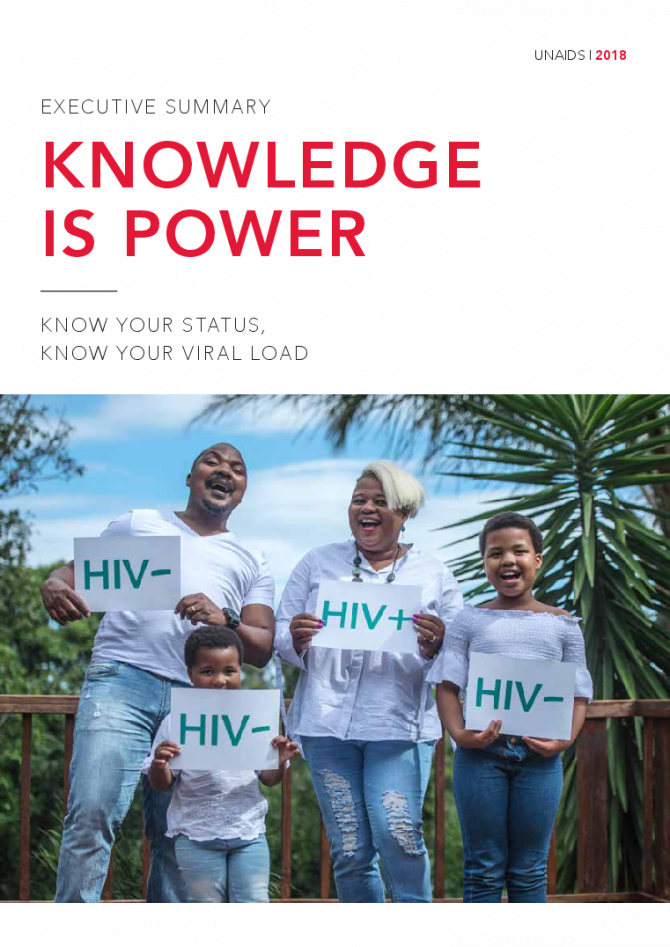Documents
UNAIDS Gender Assessment Tool — Towards a gender-transformative HIV response
01 February 2019
The gender assessment tool for national HIV responses (GAT) is intended to assist countries in assessing the HIV epidemic, context and response from a gender perspective and in making the responses gender transformative, equitable and rights based. The GAT is designed to support the development or review of national strategic plans and to inform submissions to country investment cases and the (Global Fund.
Documents
Tuberculosis and HIV — Progress towards the 2020 target
22 March 2019
Most countries are not on track and too many people living with HIV are still dying from TB which is preventable and curable. The most vulnerable and the marginalized are still out of reach of HIV and TB services and in around 40 countries the number of TB deaths among people living with HIV is increasing. This is unacceptable.
Documents
Women and HIV — A spotlight on adolescent girls and young women
08 March 2019
Adolescent girls and young women are still disproportionally affected by HIV. In eastern and southern Africa in 2017, 79% of new HIV infections among 10–19-year-olds were among females. An estimated 50 adolescent girls die every day from AIDS-related illnesses. And each day, some 460 adolescent girls become infected with HIV.
Documents
Zero Discrimination Day 2019 - Act to change laws that discriminate
15 February 2019
On Zero Discrimination Day this year, UNAIDS is highlighting the urgent need to take action against discriminatory laws.
In many countries, laws result in people being treated differently, excluded from essential services or being subject to undue restrictions on how they live their lives, simply because of who they are. Such laws are discriminatory—they deny human rights and fundamental freedoms.
Ending discrimination and changing laws is the responsibility of us all. Everyone can play a part in ending discrimination and can try to make a difference, in ways both big and small. The Zero Discrimination Day 2019 campaign challenges people to act against laws that discriminate in their country.
Documents
UNAIDS technical support — Optimizing Global Fund grants in Asia and the Pacific 2017–2018
28 January 2019
Through its Country Offices, UNAIDS is very much at the centre of providing strategic support to national counterparts in the development of national strategic plans and Global Fund grant proposals and is actively engaged in grant negotiations through inclusive participatory processes with all stakeholders and community networks.
Documents
Miles to go - The response to HIV in eastern Europe and central Asia
12 August 2018
The HIV epidemic in eastern Europe and central Asia has grown by 30% since 2010, reflecting insufficient political commitment and domestic investment in national AIDS responses across much of the region. Regional trends depend a great deal on progress in the Russian Federation, which is home to 70% of people living with HIV in the region. Outside of the Russian Federation, the rate of new HIV infections is stable.
Documents
Miles to go - The response to HIV in Latin America
12 August 2018
Antiretroviral therapy coverage has been relatively high
and AIDS-related mortality relatively low in Latin America
for many years. However, little progress has been made
towards the region’s 2020 HIV prevention milestone, and
there is evidence of rising incidence of HIV among young
people within key populations. Brazil is playing a key
leadership role in the reinvigoration of HIV prevention,
but political commitment in the region is inconsistent.
Documents
Miles to go - The response to HIV in western and central Africa
12 August 2018
A priority issue facing western and central Africa is the extremely low coverage of antiretroviral therapy among children. Treatment coverage among children (aged 0–14 years) is lower than among adults (aged 15 years and older) globally, but the disparity in western and central Africa is often huge: for instance, less than one in five children living with HIV were accessing antiretroviral therapy in Chad, Congo, Equatorial Guinea, Guinea, Guinea-Bissau, Liberia and Sierra Leone.
Documents
Translating community research into global policy reform for national action: a checklist for community engagement to implement the WHO consolidated guideline on the sexual and reproductive health and rights of women living with HIV
20 December 2018
This Checklist supports the in-country implementation of the 2017 WHO and UNAIDS Consolidated guideline on the SRHR of women living with HIV. To guarantee the guideline’s effective implementation and fulfil its ground-breaking women-centred spirit and principles, its uptake must include the meaningful engagement of women living with HIV in all their diversity. This guideline was developed with engagement from communities of women living with HIV throughout its development, publication and dissemination. In line with this collaborative process, it discusses implementation issues that laws, policies, health, social and other relevant initiatives and service delivery must address to achieve gender equality and support human rights. The overall objective of this Checklist is to support women living with HIV and community activists who care about the rights of women living with HIV to guarantee effective implementation of the WHO and UNAIDS Consolidated guideline on the SRHR of women living with HIV.
Documents
(Executive summary) Knowledge is power — Know your status, know your viral load
22 November 2018
For people who may have been exposed to HIV, knowledge is critical to making informed decisions about their future. An HIV test is a serious event with potentially serious outcomes. But no matter the result, the test provides vital information. A negative result is an opportunity to take deliberate steps to prevent future acquisition through prevention methods tailored to that individual’s risks. A positive test result—and a confirmatory diagnosis—is never welcome news, but for people living with HIV, it is a necessary first step towards a long and healthy life.

